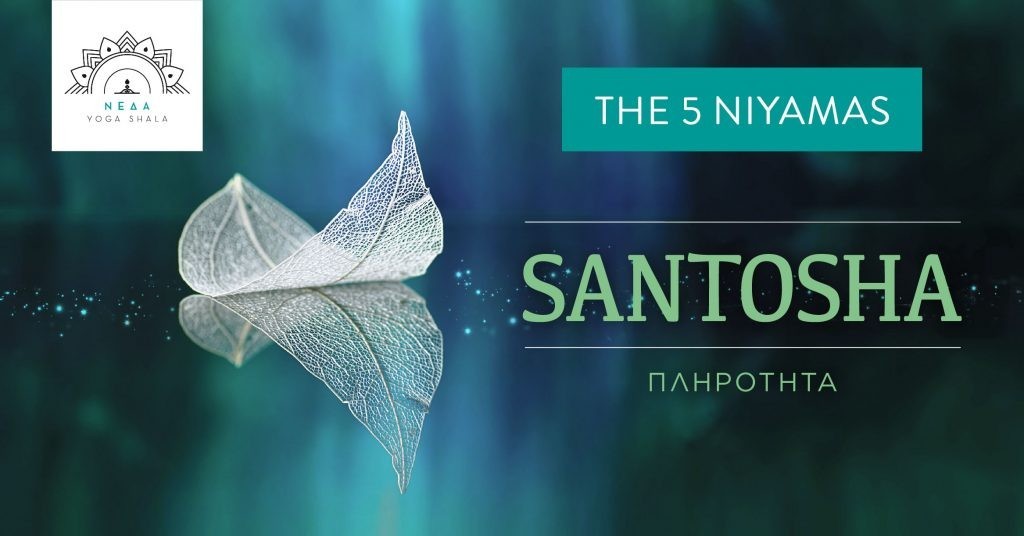
Santosha
The second Niyama is Santosha, which is translated as contentment.
In our times, we are disconnected from the present moment, which turns Santosha into a continuously elusive feeling. We say “I will find happiness when I have this". So we buy it. "Now, that I bought it, I need something else. When I get it, I will…”. And then, there are times when we live in our memories of the past. We look back to more carefree, easier days, with fewer burdens, and we label them as being "happier". But contentment is a matter of the present moment, which transcends the mind and its needs and desires. It is an inner state, in which regardless of what comes our way, we feel whole.
The practice of Santosha does not mean non-evolution. When something in our life does not serve us, we take action. We do all that is necessary to improve our daily life. But we do not base our happiness on that. Whatever comes our way is welcome. It will not last forever. If we do not realise that, the feeling of being unsatisfied will keep chasing us. The job we are pursuing, the new car, the person or the friendship we long for will give us a temporary pleasure. The more we invest in this momentary feeling of pleasure and the more we try to hold on to it, the greater will our disappointment and sorrow be when we lose it.
There is a poem by the Persian poet Rumi, called “The guest house”, which very well reflects the attitude with which human beings should face everything that life holds for them.
This being human is a guest house.
Every morning a new arrival.
A joy, a depression, a meanness,
some momentary awareness comes
As an unexpected visitor.
Welcome and entertain them all!
Even if they’re a crowd of sorrows,
who violently sweep your house
empty of its furniture,
still treat each guest honorably.He may be clearing you out
for some new delight.
The dark thought, the shame, the malice,
meet them at the door laughing,
and invite them in.
Be grateful for whoever comes,
because each has been sent
as a guide from beyond.